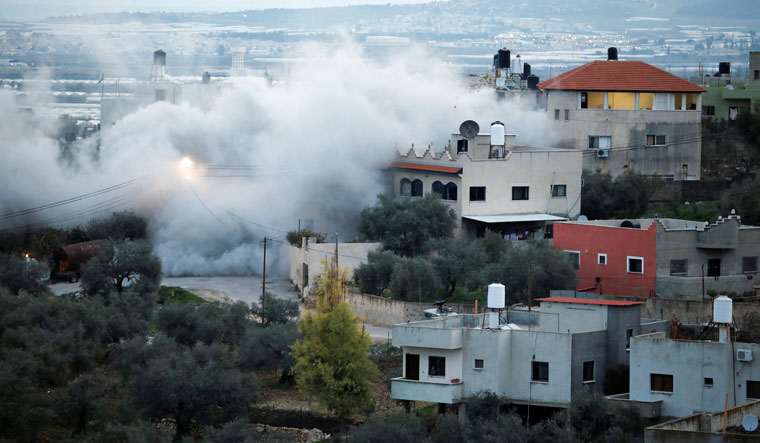Israel killed three senior commanders of the militant Islamic Jihad group in targeted airstrikes early Tuesday, the military said. Palestinian health officials said 13 people were killed in all, including the commanders, their wives, several of their children and others nearby.
The attacks in densely populated residential areas set the stage for a new round of heavy fighting. They hit the top floor of an apartment building in Gaza City and a house in the southern town of Rafah.
The Palestinian Health Ministry said 20 people were injured, and that ambulances were continuing to evacuate people from the targeted areas.
Airstrikes continued in the early hours, targeting militant training sites, Israel said.
In the past, Palestinian militant groups in Gaza have retaliated for such targeted killings. In anticipation of Palestinian rocket attacks in response to the airstrikes, the Israeli military advised residents of communities within 25 miles (40 kilometres) of Gaza to stay close to designated bomb shelters.
Israel's Home Front command ordered the closure of schools, beaches and highways in cities and towns in southern Israel, and limited public gatherings.
The military said the three targeted men had been responsible for recent rocket fire toward Israel.
It identified them as Khalil Bahtini, the Islamic Jihad commander for northern Gaza Strip; Tareq Izzeldeen, the group's intermediary between its Gaza and West Bank members; and Jehad Ghanam, the secretary of the Islamic Jihad's military council. Their funerals were planned for later in the day.
The Iran-backed Islamic Jihad, which is smaller than Gaza's ruling Hamas group, confirmed the three were among the dead. The Palestinian Health Ministry said that along with the three commanders, their wives, several of their children and others nearby were also killed 13 in all.
The Israeli airstrikes drew condemnation from Palestinian Prime Minister Mohammed Shtayyeh and the Egyptian government, which often brokers between Israel and Palestinian militant groups in the Gaza Strip.
Dawood Shahab, an Islamic Jihad official, said that there would be a unified Palestinian response to the strikes at a time and place of its choosing.
Hamas leader Ismail Haniyeh warned that Israel will pay the price for the killings. Assassinating the leaders with a treacherous operation will not bring security to the occupier, but rather more resistance, Haniyeh said in a statement.
The airstrikes came at a time of boiling tensions between Israel and militants in the Gaza Strip. It is linked, in part, to increasing violence in the occupied West Bank, where Israel has been conducting near-daily raids for months to detain Palestinians suspected in planning or carrying out attacks on Israelis.
Last week, Gaza militants fired several salvos of rockets toward southern Israel, and the Israeli military responded with airstrikes following the death of a hunger-striking senior member of the Islamic Jihad in Israeli custody.
The exchange of fire ended with a fragile cease-fire mediated by Egypt, the United Nations and Qatar.
The airstrikes are similar to ones in 2022 in which Israel bombed locations housing commanders of Islamic Jihad group, setting off a three-day blitz that saw the group lose its two top commanders and other dozens of militants.
Israel says the raids in the West Bank are meant to dismantle militant networks and thwart future attacks. The Palestinians see the attacks as further entrenchment of Israel's 56-year, open-ended occupation of lands they seek for a future independent state.
So far, 105 Palestinians, about half of them are militants or alleged attackers, were killed by Israeli fire in the West Bank and east Jerusalem since the start of 2023, according to an Associated Press tally. At least 20 people have been killed in Palestinian attacks in Israel in the same period.


